The Alternatives to Windows 8
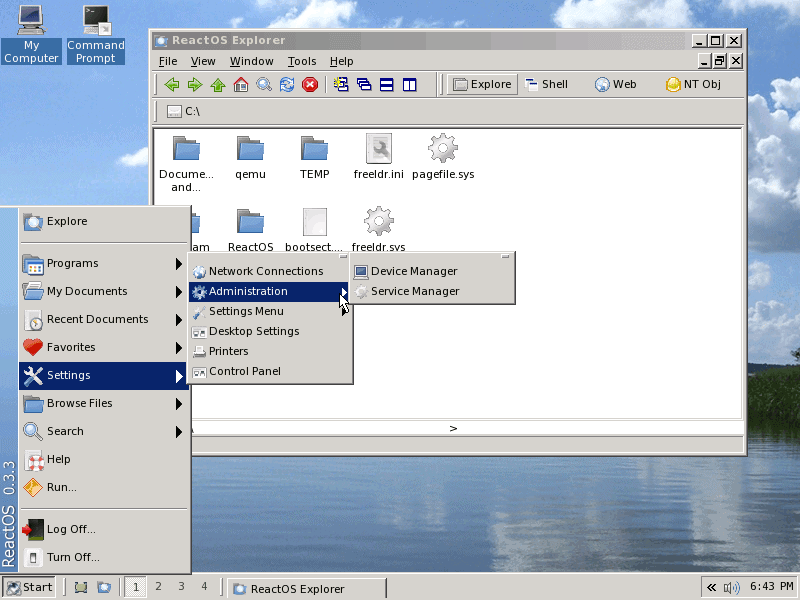
Windows 8 is unique in that it is the first version of Microsoft's mighty operating system that faces serious and stiff competition from its rivals. For the first time there are not just one but a great many serious contenders for the role of your desktop OS. So with so many people wary about the changes that Microsoft are bringing forth I thought I'd take a look at the alternatives, see how they might fit with your Windows world, and examine just how realistic a switch away from Windows this year can actually be.
Windows 7
The obvious place to start is with Windows 8's predecessor, Windows 7. One thing is certain, that this operating system will be hugely popular right up until support ends for it in January 2020 and possibly even beyond as it wouldn't be without precedent for Microsoft to extend the support life for a version of Windows. Windows 7 could be considered the 'ultimate' version of the desktop OS, not just because it's the last true desktop OS from Microsoft, but because of its reputation for reliability, compatibility, stability and security. There is also XP Mode to run any older Windows software that won't run natively, but with support ending for XP in April 2014, it would be unwise to use any XP software after this time that requires Internet access, and many including Microsoft and security researchers would advise not using it at all after this time. Sticking with Windows 7 is probably the best solution in many ways. It will still be on sale and being shipped with new PCs until the autumn of this year and many will consider it the operating system to use going forward.
Windows Vista
Few people would now consider Windows Vista as a viable alternative to Windows 7 or Windows 8. Notoriously slow, especially on older hardware, and with software compatibility that was largely broken, almost all Vista users have either upgraded to Windows 7 already or plan to do so as soon as possible.
Windows XP
Despite the popularity and compatibility of Windows 7, it's Windows XP that has won hearts and minds in the way no other Microsoft operating system ever has. This comes despite some huge security issues that have plagued the platform and its default web browser Internet Explorer 6. This operating system is already out of mainstream support, so no more service packs and updates are being issued, and extended support for security and stability fixes ends in less than two years, before the launch of Windows 9. A lack of suport for new technologies including USB3 and Thunderbolt also count against this OS, unless you are able to get specific third-party drivers. Anybody sticking with Windows XP will need to have a very good understanding of the security risks involved in doing so, this really isn't a strong contender for your OS choice for the next few years.
OS X
Apple's desktop operating system has a great many strengths, but a few major weaknesses as well. Those strengths involve being one of the most stable and secure operating systems the world has ever seen. It's eminently usable too with gesture control that Windows 7 simply can't match and a software base every bit as strong as that for Windows. It's not going anywhere either. On the minus side there are still questions about how Apple are set to integrate their iOS tablet features into the desktop, effectively doing what Microsoft are doing with Windows 8 but probably to a slightly lesser degree. Moving to OS X would also not just require buying a new and sometimes expensive computer (or even computers) but unless you were going to run Windows 7 or Windows 8 in Boot Camp or the Parallel's virtual machine, you would have to re-purchase all your software as well, as very little software these days comes with both PC and Mac licensing.
Ubuntu
Three years ago GNU/Linux was still the rank outsider in the desktop OS world, but times have changed with Canonical turning their Ubuntu OS into an operating system every bit as polished and usable as OS X or Windows 7. The best part is that this operating system is free and, with version 12.1 now comes with long-term support, meaning it's no longer essential to upgrade your operating system every few months. On the downside, software support, especially for the major apps is still lacking with traditional Linux apps lagging behind their OS X and Windows alternatives. Ubuntu's new HUD (Head up Display) for finding menu items in software might not be to everyone's tastes either. This feature can be switched off and traditional drop down menus reinstated, but Ubuntu still needs that all important software support to compete on a level playing field.
ReactOS
Currently in alpha, this Russian organised Windows NT/XP clone promises to be binary compatible with Windows and support every piece of hardware and software that works with Windows XP. It's a bold claim that so far seems to be panning out. It should be complete and bedded-in by the time Windows XP support ends so it could be a viable alternative. On the down side, Microsoft has a way of aggresssively going after any "Windows Clone" and having already shut down Lindows a few years ago they will soon have their guns trained on ReactOS, no matter how well the developers might be covering themselves in terms of copyright. There is also the fact that ReactOS has been in an alpha stage now for an extremely long time, and frankly may never be completely finished.
iOs, Android, QNX
Do you actually need a full desktop operating system any more? This is an interesting question as the majority of tasks we perform on our PCs can now be done equally well on a tablet running Apple's iOS, Google Android or RIM's QNX. These tasks, including email and web browsing are actually pleasurable on modern tablet operating systems and this situation is only set to improve. The burgeoning app stores, and the quality of those apps is improving every day too with companies like Adobe showing how advanced photo editing, another of our major tasks, can be made simple and pleasurable on a tablet.
Here the problem is storage and file management. With a tablet you're restricted to storing your files mainly in cloud services and in order to get those files on the tablet in the first place, or indeed into the cloud, you need to synchronise with a desktop computer. We can fully expect these devices to become more independent over time, and perhaps even support external hard disks and USB pen drives. Unless and until this happens though these tablets (and I'm obviously excluding Windows 8 tablets from the list) just aren't quite ready to handle our ever expanding collections of music, videos, files and photographs.
Summary
So this is my own take on the alternatives to Windows 8 and how effective and realistic a move to each one might be. You will probably have your own ideas on what would make a good alternative and why. You might be just sticking with XP despite the security concerns, or sticking with Windows 7. You may even decide that now is the time to get rid of your desktop PC altogether and move solely to a tablet. Perhaps your music is already stored in the cloud or you use a service like spotify, and maybe your new digital camera can upload your files directly to Picassa or another cloud service for you. Why not tell us your thoughts in the comments.
Advertisement
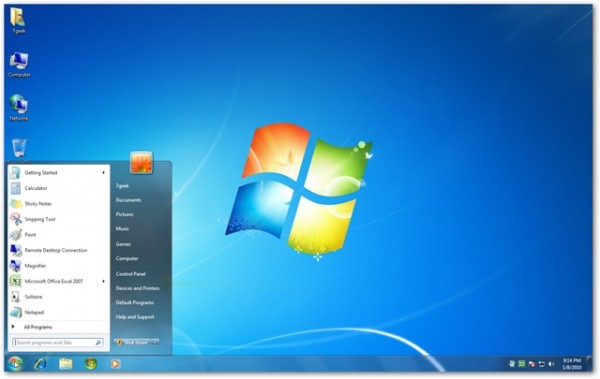
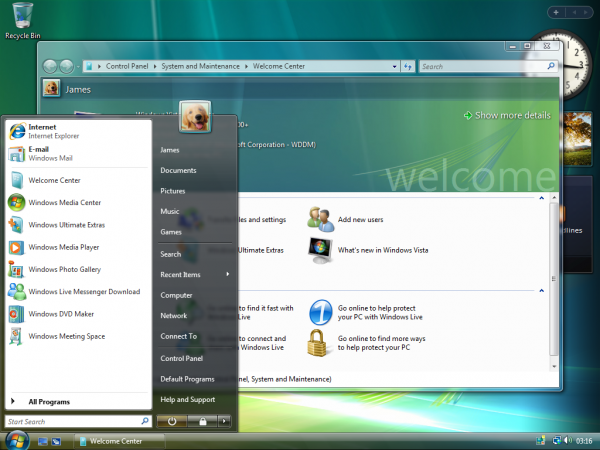
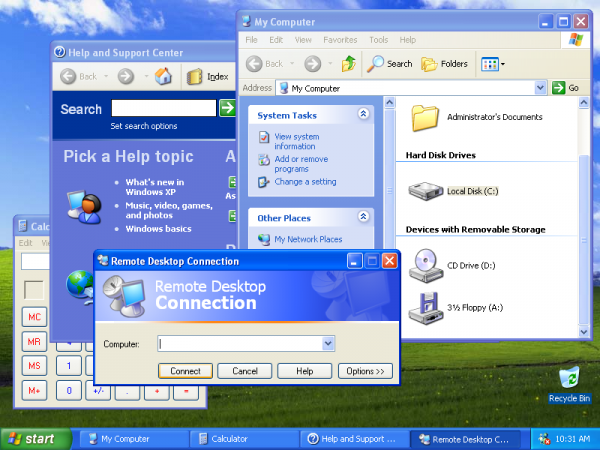
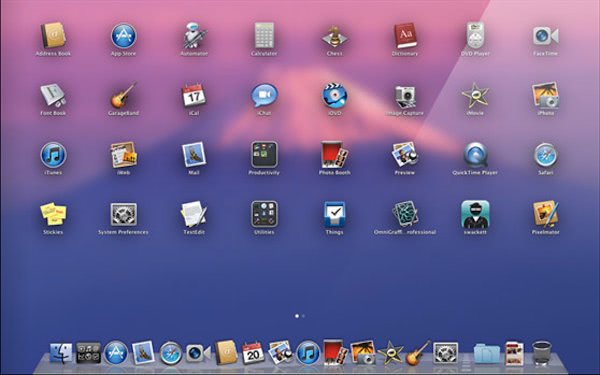
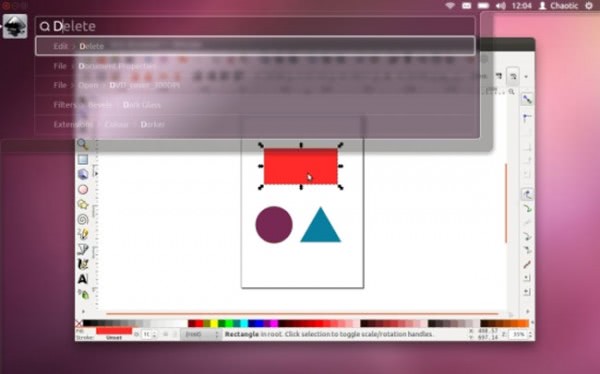
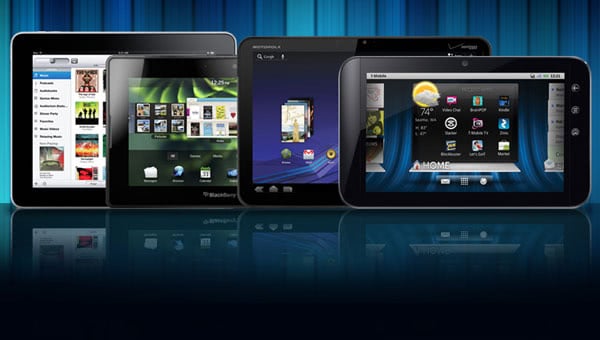




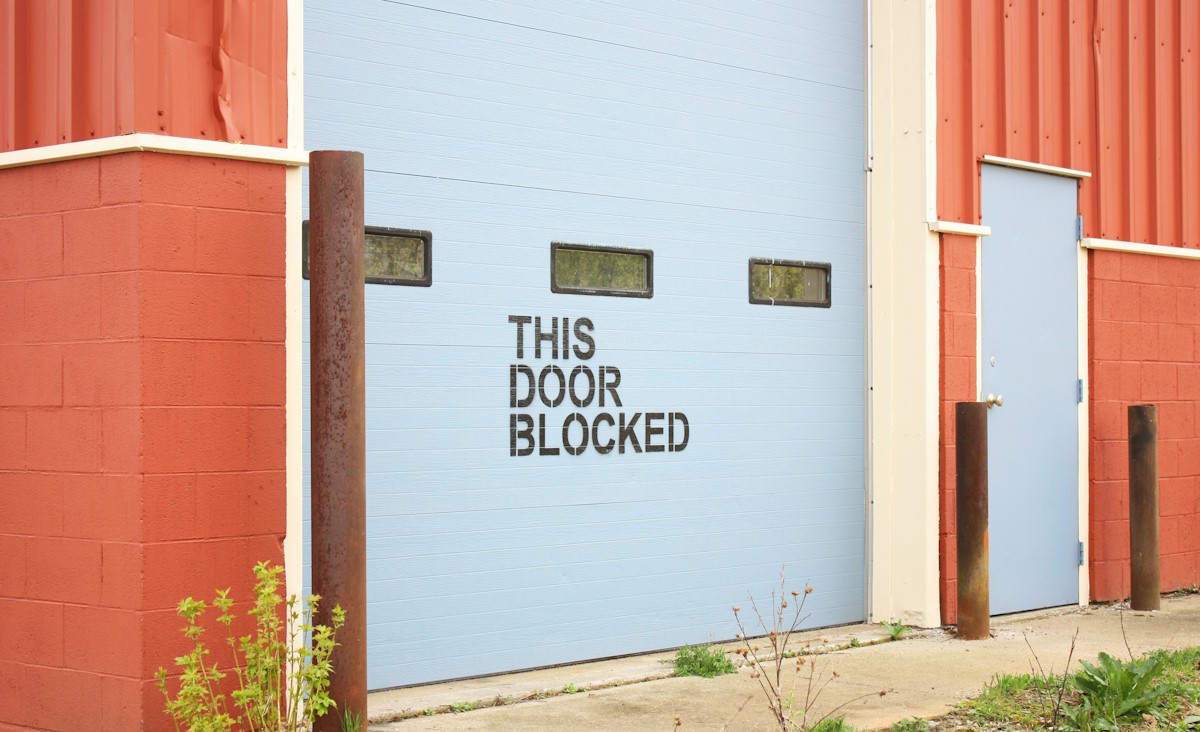
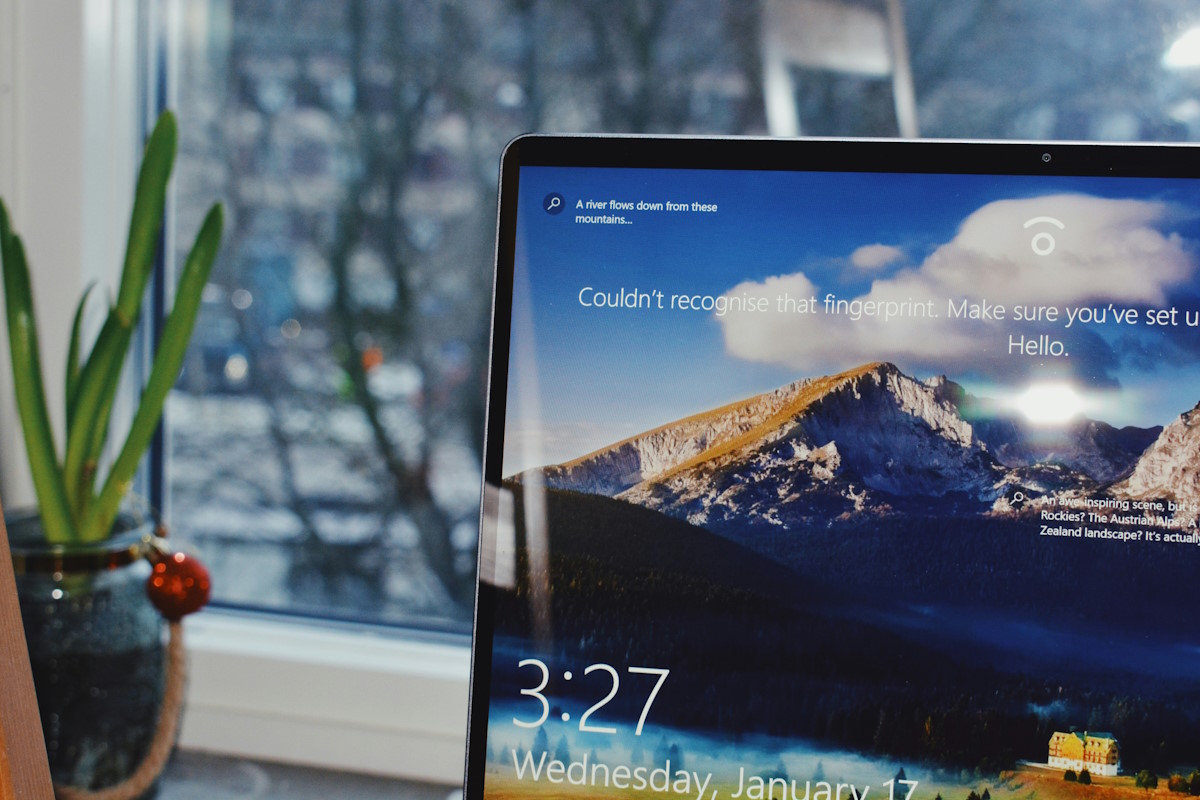











TIME FOR AN UPDATE,NO??
Well,yeah,sure..but what about Puppy Linux?
Puppy Linux is just beautiful. At the very least, it’s definitely worth a look:- Everything you could ever want, tiny foot print,dead simple,runs on the smell of an oily rag, and shock, it actually works, and, really well, even on ancient hardware.
And there is a whole stack of different flavours to chose from.
http://www.puppylinux.com/
Best alternative to windows 8 superb post
well,all im readin in here about is windows OS and linux,im 1 using the first and used the sec as umbuntu and mint and some others,but i like the 2 mentioned,so in all of this comments here,i dont see any sayin anything about that wasome and the most secured OS x for mac,i can say that its the worst and a nightmare os ever,it only can be installed on their own macs,so for me that means its a crapy shit,but takin windows and linux that can be installed on any computer in the world,including macs,r the best way not at revers,so u take ur best of all and u know what to do with it,bout windows 8,i dont find it bad at all and i used windows platform since was windows 3.1 if any of u even heard of it,and i like it very much exept of the prices that microsoft ask for,bout linux,a extremely gr8 platform,i just love it,umbuntu is the first i start workin with but i found out about mint and i try it out,just left me a sweet mouth taste after using it,both gr8,but once again mac…wont ever gonna be a leader,ever and that i cant install it on any computer,wont ever gonna make me like it
I think Windows 8 was one of the biggest Tech Fails of the year. As Jon above states I don’t believe Microsoft really tested to average consumers.
I will be testing out all the alternative options to Windows out there on a few spare laptops, will share my findings to help more people move away from Microsoft
XP is BoomerWare while Win 7 must have been designed by twenty-somethings who hate their parents. I looked at Win 8 and gagged. Scary. I can only assume that Microsoft does not do consumer testing on average users. I mean – what was so wrong with the toolbar that they had to make it almost unusable for the XP generation? For now, I am keeping an XP machine, off-line, to run my SCSI tabloid scanner that would cost me $400 to replace. I will use my quad desktop with Win 7, along with a superb 27″ monitor, while I mourn the loss of the clarity and ease of use of XP. Finally, thank you for the OS review. I found your site while searching to see if there was an alternative to Windows and Mac. Apparently, not yet.
Some of us use our desktops for serious multitasking which includes, programming in multiple languages, all sorts of data analysis, media production, communication, etc. This new move to a lobotomized work space will force me to find an alternative.
No freaking way I’m switching another OS when 99% of the software available is Windows software. Also I’ve tried many Linux distros, and got turned off by their archaic and ugly interfaces, problem-ridden software, and the need to compile half of the applications. And LMAO, ReactOS looks like Windows 95 and is still using the archaic and awkward Win95-style Start Menu, with the programs menu (ie: the menu that you will be using THE MOST) at the top (read: THE FARTHEST AWAY POSSIBLE from where the mouse cursor will be when you open the Start Menu, as if it was the least used menu) and no most often used programs list nor a search function. What a joke. If that’s an example of what most of its interface is like, then no thanks.
Then again, I have plenty of gripes with Windows 8. The Metro interface and its apps are moronic and have no place in a desktop computer or a laptop; they only belong on Windows Phone. And the shell’s look is really hideous, I mean, it looks like it was designed in 15 seconds. Even Windows 95 looks better, for pity’s sake. I will be using Windows 7 for as long as it’s possible, and if I’m forced to upgrade to Win8 due to software requiring it or Win7 no longer being supported, I’ll do so and disable all the Metro crap (even if I have to use third party software or modifications) and install a theme that doesn’t make the desktop such a eyesore.
How did you even included Vista in it ? Vista is a memory sucker for no good reasons !
Where is Linux MINT ?
Windows Vista is really a good operating system. I know it had some problems at first…
It is very similar to Windows 7, and it is truly the “next best thing”. It also gets Service Pack 2 and the Platform Update, which makes it nearly identical to Windows 7, API-wise.
If someone, for some reason, can’t get Windows 7, then I would recommend Windows Vista.
Not that I have any problems with Windows 8…
It looks like I am not the only person who has the idea that she is caught between a rock and a hard place. However, having seen the first glimpses of Windows 8, and lingered at station XP (no time to look for stuff, figure out how it works, I am fine as I am, why pour in more money), we now also started to think about how to go on. Our group here (university) started to look at it from the other side, to really analyse what you actually do with your machine. For that a large group of users documented everything they did for 3 months.
As I read here too, it turns out our internal customers (professional and private) do 2 things; overwhelmingly first is the standard stuff, i.e. general internet, email, and video communication. Second come photos, music (mp3), and the classic Office package tasks. In short, we found that our main hesitation came from the Adobe programs (Photoshop and Acrobat) and some specific, professional programs. With the last group in mind we found that these SOMETIMES are available for Apple, but not always. But with some of these expensive programs not running on later Windows versions…
Hence our decision has been to give Mint a try. After some months we have found it to be extremely stable and easy, resource friendly, although old XP reflexes die hard. The Mint distro is surprisingly complete, with for example Firefox, Thunderbird, and LibreOffice now included. I can see us staying with Mint for the long run and offering it to our students. The only thing that concerns (and annoys) me is that, since Linux is a free and open OS, the major software houses/ hardware producers will take it on board since there is no money to be made there…
I’m watching haikuos (but I feel too tired to try, these days). they’re working on qt to run kde apps.
Also check aros/icaros.
Mike Halsey is right that Linux lacks some of the “major” app support that Windows and Mac have (like Photoshop). However, great apps do exist for Ubuntu. And lots of work is underway to help make it easy for App developers to release new applications on Ubuntu.
When I switched to Ubuntu, some applications that I used on Windows stayed exactly the same (e.g., VLC, Firefox, Thunderbird). Other apps I had to find a substitute. Funny thing is though some of the “substitutes” I found on Ubuntu I ended up liking better than what I was using on Windows (e.g., Exaile music player and gPodder). Linux has great apps. And it’s going to get a lot better now that Ubuntu also supports QT toolkit.
Ubuntu is a great choice for a number of reasons. First of all, many consumers these days only use their computers for the web, email, word processing, and media watching/listening which can all be done easily in the Linux ecosystem. Second, if you are a programmer, the tools available are amazing and there are strong alternatives to proprietary programs (like OpenJDK for Java) that make it great on both ends.
I keep one “old” laptop around with Windows XP so I can use old programs. All my other computers have got Ubuntu on them. I got one machine with Windows 7 but don’t use it much.
I don’t understand the whole point of the METRO thing. It makes sense for touch UI, but for keyboard dominant Desktop users it’s useless. Maybe for mouse clickers the Metro things will work.
For now I stick with Windows XP, work also with Windows 7, and some of Ubuntu family (Mint or other derivative).
You know, I used Opera browser for some years, 2001-2007. In 2007 I started to use Firefox (I tried Mozilla Suite before, but didn’t like it at all). In the 2008 I switched to FF as my primary work browser. And shortly after that – as primary at home. I never returned back to Opera. Sometimes I use Chrome, but it’s not that comfortable to me (despite the fact that it’s faster with JavaScript).
Similarly I started to use OpenOffice 2 in 2007. Switched to it as my primary office suit in 2008, and use it as primary even at workplace with corporate MS Office.
Now, I think, something like that can happen to me and Ubuntu. I use it as my backup/rescue OS so far, but I use it more and more, as I did Firefox and OpenOffice before. So, in a few years it can become my primary OS…
So, here’s my plan in 2014…
(when MS stops monthly security updates for Win XP).
1) Run UBUNTU Linux, as main OS.
2) Inside UBUNTU,
run VirtualBox with the last updated version of XP (2014).
This way, I can still run those XP-only programs I love & use, day-to-day.
(ie: Dreamweaver, Autohotkey, etc…there are no Linux equivalents….).
3) And here’s the final twist:
run DW, AHK, etc.
in the VirtualBox *** totally disconnected from the Internet ***,
for security reasons…no Internet access inside the box.
But…the UBUNTU Linux host, is connected to the Internet normally.
Well, that’s my hybrid solution to this brave, new 2014 world…
Any opinions?
Is it feasible to have “Virtual Box” without connectivity,
running XP progs inside UBUNTU ?
yeah, i like your idea. i still runing windows xp for work. some my old program like cad and 3d just run better on xp. i should not waste my money on windows 7 and upgrade all the software too. i can use my tablet to check my mail or browsing the internet. and i also downloading movies, music etc by my android phone… thats cool…
It is quite possible to run an older and even unsupported OS safely, if you take precautions. I run various versions of XP on several machines, and plan to keep doing so. Precautions?– I run MS Steady State on all machines, I occasionally backup to separate hard drives, and on a couple of machines I even have spare hard drives, already set up.
With MS Steady State I have the luxury of NOT having to wait at boot-up for all the various and sundry updates (e.g.- Windows, antivirus, browser, etc.), all of which seriously slow boot-up time to a crawl.
‘Ello???
Where is FreeBSD, especially PC-BSD 9 which appears to be a killer…!
1. Its the father, mother of Linux;
2. Important parts of it form(ed) the basis of Steve’s OS-X.
Its 2012, not 1991.
I can’t work without a desktop. What’s more, I don’t want to. Mine uses XP and will continue to use it regardless of whether or not MS supports it. I use a laptop when traveling. It’s loaded with Win7 – more irritating than XP, but a useful system. Before MS ends support for Win7, I will purchase another desktop and set it to dual boot XP and 7. I will skip Windows 8 and probably anything that follows.
I’m rooting for ReactOS to get off their a_ _ and pick up the slack. Apple and Linux don’t cut it. All the good software/shareware/freeware is written for Windows.
“Apple and Linux don’t cut it.”
Well, that sounds like a rather general throwaway statement.
kalmly, have you actually even tried these?
There are many different Linux distributions out there and I have found plenty of freeware in the repositories. I will admit that I am not really happy with OpenOffice, but Office 2007 is a nightmare for someone who actually has to use it to get work done – unless you know most of the old keystrokes by heart (most, but not all, still work). Unfortunately they don’t work in OpenOffice.
And the key to computer happiness is finding forums and user groups that will help guide you to what you want. I learned this in the 8bit Atari days.
You should really try Mint, though. I’m finding it to be a much more normal OS and prettier, too.
BTW, Mike, what is with the “long-term support” comes, now, with 12.1?
I’ve had LTS, starting with 10.04. I’ve used it for over a year and a half and only switched to Mint 9 because of a hard drive problem.
My e-mail sig has been “Lucid Lynx means Liberation! Windows is now obsolete”
Thanks for the informative evaluation of alternative operating systems. I have a Windows 7 laptop, and after every update it just takes to longer to boot up. I rarely use it any more. I have started to migrate the majority of my computers over to Ubuntu Linux. I use another laptop daily that is running Ubuntu. I would run only Ubuntu, except I have some computer games I continue to play on XP.
Gene
“Notoriously slow, especially on older hardware, and with software compatibility that was largely broken, almost all Vista users have either upgraded to Windows 7 already or plan to do so as soon as possible.”
WHAT????
Hey, Windows Vista’s software compatibility is not broken in any way. OK, most Windows Vista users were extremely annoyed with incompatible software – but it were the software vendors who were late at updating their softwares. Mind you – hardly any software versions which do not work on Windows Vista will work on Windows 7. Windows 7 does not have improved software compatibility as compared to Windows Vista.
Next, agreed that Windows Vista is slower than Windows 7 – but not to a significantly large extent that you call it ‘notoriously slow’. There are many many performance areas where Windows 7 beats Windows Vista – but only by a few points/milliseconds.
I am seriously disappointed seeing a Microsoft MVP describing Windows Vista in such a manner.
Are you working for Microsoft?
@Swapnil thanks for your comments. Regards software compatibility in Vista there are many cases, including software that I use myself of things refusing to work, or work properly in Vista, but working fine in Windows 7. When Microsoft were developing Windows 7 they did acknowledge that software compatibility in Vista needed to be improved.
That’s very strange. Never seen a software not working on Windows Vista and working on Windows 7. Might be one of the very handpicked ones.
May I know the software’s name?
But still – you cannot say application compatibility is “broken”.
The best way to describe it, in my point of view would be Windows Vista has some compatibility issues.
Agreed, Mike. I have a machine which came with Vista preinstalled and it was pretty darn sluggish despite being cutting edge at the time. Sure, it was from an OEM so you could argue it was all the bloatware, but this was especially built by them for education and had little in the way of bloat. I wiped the machine after a while and reinstalled a fresh copy of Vista anyway, mostly because it somehow destabilised and kept having to reconstruct system files whenever I booted. It still was slow and clunky. I installed the Windows 7 beta and never looked back – it was like slapping another 4GB of RAM into the machine. It continues to fly even today with modern games or resource hungry applications. I know many IT professionals who have had the same experience. Vista was notorious among us for its sluggishness and it was only made all the more stark when the same hardware would run 7 with much more grace.
Out of all the options you’ve listed, I imagine I am going to stick with Windows 7 for quite some time. The nerd part of me feels a bit disappointed; I love new systems and gizmos. Still, I cannot really imagine what else I would want or need in an OS. Until hardware and software that is no longer compatible with 7 becomes ubiquitous, I don’t really foresee a problem in sticking with it. It does everything I need and if I want to play around with something new and shiny now and then, I can always update Ubuntu and see what new features it has. So far, though, nothing has really stood out and made me wish for significant updates to 7.
You wrote, support for Windows 7 will end in January 2020. As far as I know, extended support is offered only for Professional and Enterprise. Do you expect, it will be expanded to the other versions with coming Service Packs? (Excuse my English).
@Hans, mainstream support for Windows 7 ends in January 2015 and unless Microsoft amend this there will be no further service packs after this time. As for extended support patches and updates will continue to be rolled out to all Windows 7 editions as they currently do with XP until 2020.
Only in some extreme scenarios, such as military and defence usage do organisations occasionally pay Microsoft to provide continuing support after extended support has ended.
Thank you!
Thanks for the info. For me the decision is very easy: I have a windows XP license which I will continue using, and alongside it I will still be using Slackware Linux. :)
Thanks Mike; an great and detailed article. :)